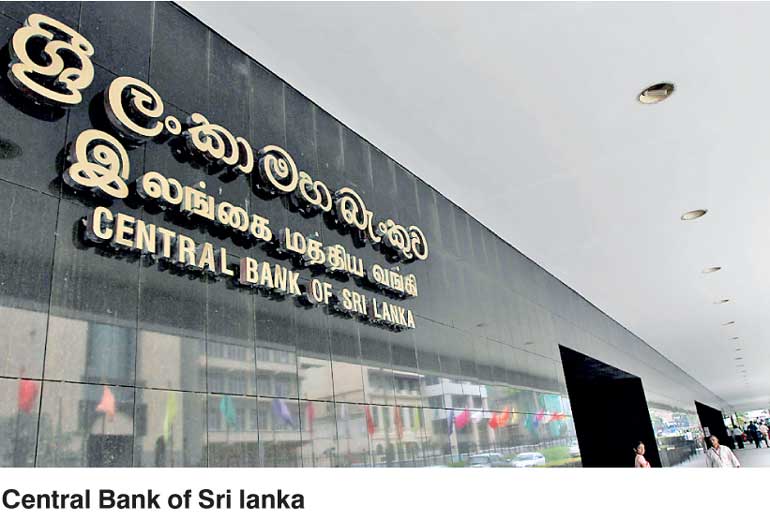Tuesday Feb 24, 2026
Tuesday Feb 24, 2026
Saturday, 17 February 2018 00:00 - - {{hitsCtrl.values.hits}}

By Uditha Jayasinghe
The Central Bank yesterday expressed confidence that its renewed efforts to meet international compliance guidelines will see the country’s ratings return to safe territory later this year.
Sri Lanka has been given till March 2019 to fulfil the requirements by the Financial Action Task Force.
“We believe that within eight to 12 months we can fulfil these requirements,” Central Bank Deputy Governor C.J.P. Siriwardene said. “Every quarter we are reporting progress. Last month also we had a review meeting.”
Central Bank Governor Dr. Indrajit Coomaraswamy said the Prime Minister and the Cabinet had been informed of the urgency in updating and improving legislation, which will require the coordination of several departments and ministries as well as the Attorney General.
“The bottom line is we are working flat out,” he said, adding, “coordination between the different agencies could have been better.”
“In a grey list (monitoring status), you are put on notice. At present we have not seen any direct impact but then if you slip down to the blacklist, it has dramatic repercussions,” said Governor Coomaraswamy.
“For example our banks can lose their correspondent relationships and generally people would be reluctant to deal with our financial institutions. Right now it is an amber light.”
Given below is a detailed statement released by the Central Bank on Thursday in this regard.
The Financial Action Task Force (FATF), the global policy setter, has introduced 40 recommendations on Anti-Money Laundering and Countering the Financing of Terrorism (AML/CFT) in order to combat money laundering/terrorist financing and other related offences globally.
The Asia Pacific Group on Money Laundering (APG) functions as the FATF’s regional affiliated body and monitors the level of compliance with the FATF recommendations in the region. Sri Lanka is a founding member of the APG.
The FATF evaluates legal, institutional framework and effective implementation of AML/CFT measures of countries regularly through regional monitoring bodies. Sri Lanka was subjected to its 1st Mutual Evaluation (ME) by APG in 2006 and the 2nd ME during 2014/15. The 2nd Mutual Evaluation Report (MER) on Sri Lanka, which was adopted in July 2015, recommended Sri Lanka initiate a number of actions to rectify the AML/CFT deficiencies identified during the ME.
Subsequently, Sri Lanka implemented a series of measures to address the deficiencies including adoption of National AML/CFT Policy, issuance of Customer Due Diligence Rules for Financial institutions and introduction of risk-based AML/CFT Supervision for financial institutions.
At the same time the institution-wise action plan to rectify the deficiencies highlighted in the ME was adopted with the approval of the Cabinet of Ministers. Based on the progress made, APG upgraded a further nine recommendations, initially rated as partially compliant to largely compliant level, bringing the total number of compliant/largely compliant recommendations to 21.
In October 2016, the FATF informed that Sri Lanka will be subject to a review of the International Cooperation Review Group (ICRG) of the FATF to assess the progress of AML/CFT effectiveness. After several discussions and progress reports, the FATF informed that Sri Lanka has not made sufficient progress in four areas, namely International Cooperation, Supervision, Legal Persons and Arrangements and Targeted Financial Sanctions on Proliferations (North Korea and Iran).
As a result, the FATF at its plenary held at Buenos Aires, Argentina in October 2017, listed Sri Lanka as a jurisdiction with strategic AML/CFT deficiencies in the FATF’s Compliance Document which is more commonly identified as ‘the Grey List’. Upon listing, a time-bound action plan to address the strategic deficiencies identified was provided to Sri Lanka.
Since the listing in November 2017, Sri Lankan authorities have taken a number of measures to enhance AML/CFT compliance such as issue of Customer Due Diligence Rule No. 1 of 2018 for Designated Non-Finance Businesses and Professions (DNFBPs), issuance of regulation for North Korea on targeted financial sanctions on proliferations.
Further, several initiatives are being taken by Sri Lanka including introducing amendments to the Trust Ordinance and Mutual Assistance in Criminal Matters Act No. 25 of 2002 by the Ministry of Justice, introducing amendments to the Companies Act No. 7 of 2007 by the Registrar of Companies, issuance and implementation of regulation on proliferation targeted financial sanctions on Iran by Ministry of Foreign Affairs, implementation of regulation issued on North Korea by the Competent Authority (Ministry of Defence) and introduction of risked-based AML/CFT supervision for Designated Non-Finance Businesses and Professions by the Financial Intelligence Unit.
In addition, measures have been taken to strengthen AML/CFT supervision of the Financial Intelligence Unit by allocating more competent staff to the existing team of supervisors. Considering the scope of the action plan set out by FATF, a sound framework is now in place by the National Coordinating Committee the AML/CFT policy-setting body of the FIU to bring the commitment and coordination of all the stakeholders in the country to enhance the AML/CFT Standards. Thus, there is no doubt on the successful completion of the action plan within the given timeframe for Sri Lanka to improve its compliance and improve the country rating.